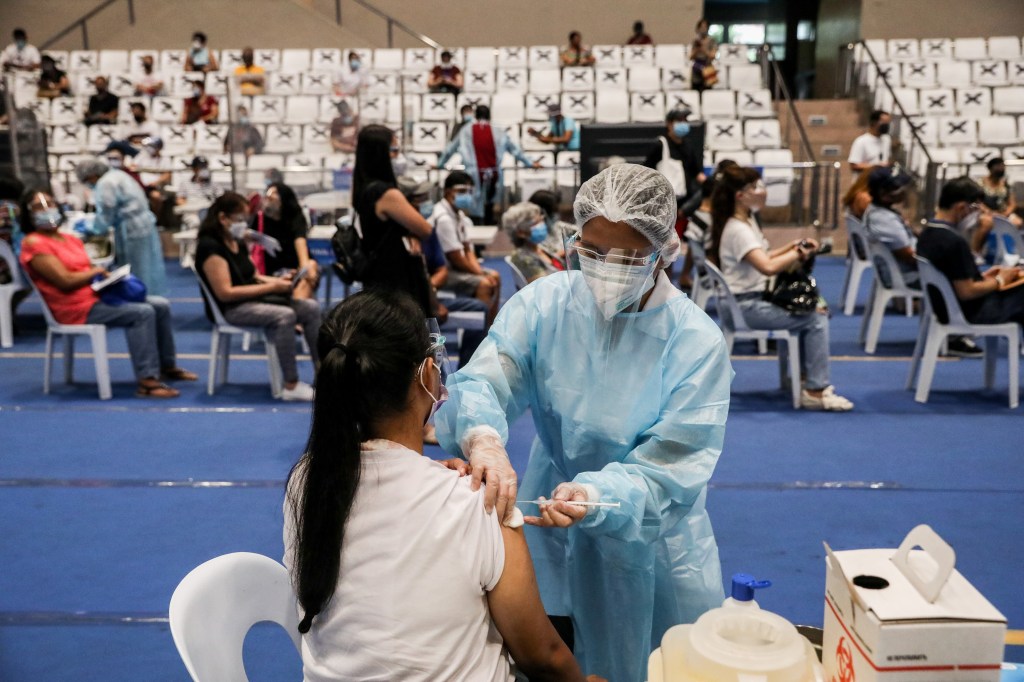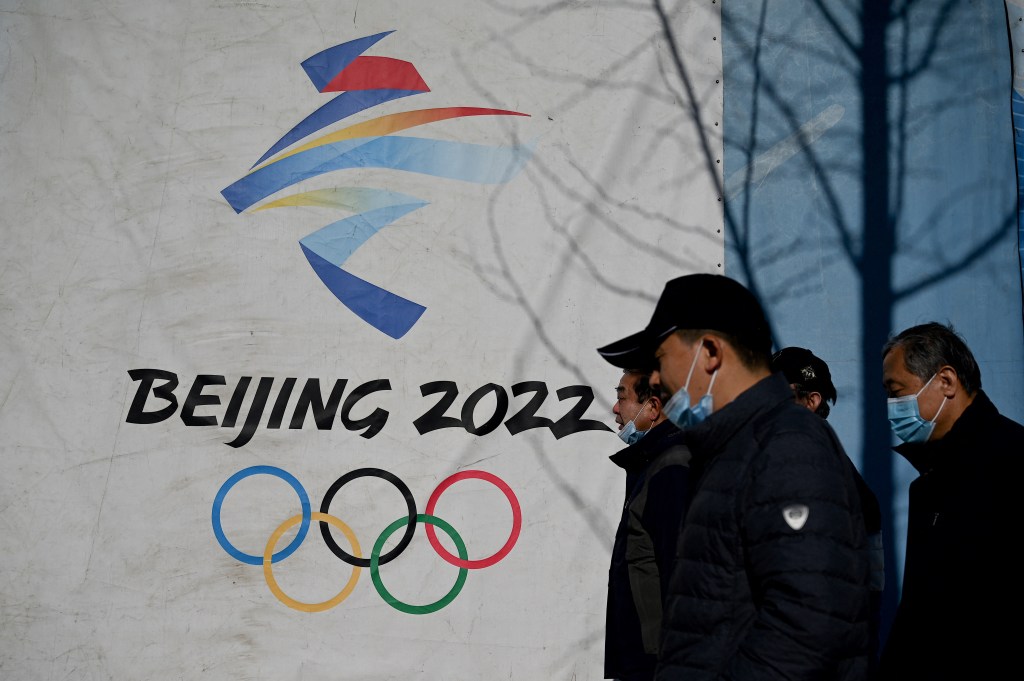Confusion swirled in the Philippines this week over a plan to bar distribution centers from announcing what brand of COVID-19 jab they have, as health officials fear too much preference can hinder a vaccination rollout that is lagging behind other Southeast Asian countries.
The so-called “brand agnostic” approach is meant to encourage more sign-ups across the board and prevent mass gatherings at places with a preferred brand.
Videos by VICE
It remains unclear how the new plan will be carried out at the local level. But people will apparently be given a chance to reject the shot after turning up for an appointment if it is not the one they want.
President Rodrigo Duterte, who received China’s Sinopharm vaccine early this month, ordered local government officials not to disclose the names of vaccines in their supply, his spokesperson said in a TV briefing on Thursday, urging Filipinos to get whatever is available. The Department of Interior and Local Government issued a similar order so as to avoid large gatherings at places with specific vaccines.
“What we’re going to enforce now is brand agnostic,” Undersecretary Myrna Cabotaje said in a TV interview on Wednesday. “If they do not like the vaccines that are given during that time, then they go to the end of the line.”
The announcement has been met with criticism from some corners over transparency concerns.
“If we are to build vaccine confidence and empower the people, they need more information, not less,” Gideon Lasco, a doctor and medical anthropologist, said on Twitter.
But in a statement on Thursday, the Philippine Department of Health dismissed ethical worries over an alleged lack of informed consent, adding that more detail will be supplied about the specific vaccine brand once people are on site.
“Not announcing what brand will be available in inoculation sites will not take away the right of individuals to be informed of the vaccine they are taking,” the department said.
The Philippines has ordered 40 million doses of the Pfizer-BioNTech vaccine along with other brands. So far China’s Sinovac is the most widely available shot. But a lack of complete data and lower efficacy rate in trials have undermined trust even as a newer real-world study showed more promising results.
The decision was prompted by scenes at a vaccination distribution center in Manila on Tuesday, where long lines formed quickly after it was revealed that the location was offering the Pfizer vaccine. Scenes like these were repeated in various locations in the capital region after the Philippines received its first batch of almost 200,000 Pfizer shots from the World Health Organization-backed COVAX Facility earlier this month.
On the local level, mayors are divided on the issue, according to different statements seen by VICE World News. One vowed to follow and support the government’s plan, while another said doing so would further contribute to vaccine hesitancy.
Immunization against COVID-19 is an uphill battle in the Philippines where trust in vaccines dramatically dropped from 93 percent in 2015 to 32 percent in 2018 following a dengue vaccine scare. A more recent survey showed that six out of 10 Filipinos do not want to get the COVID jab.
The Philippines has fully vaccinated nearly 700,000 people, less than one percent of the country’s 108 million population.







